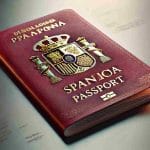Moving to Spain from the UK has become an appealing option for many British citizens. The allure of warm weather, vibrant culture, and a relaxed lifestyle attracts individuals and families alike. Post-Brexit, navigating this transition requires careful consideration of new regulations and processes.
Key takeaways for a smooth transition include:
- Understanding Residency Rights: Changes in residency rights for UK citizens necessitate awareness of new visa requirements.
- Exploring Visa Options: Various visa types, such as the Golden Visa and Digital Nomad Visa, provide pathways for living in Spain.
- Planning Ahead: Organizing documentation and understanding local laws simplifies the application process.
Adapting to life in Spain after Brexit involves embracing the opportunities while being mindful of the challenges. Comprehensive preparation allows newcomers to integrate seamlessly into their new surroundings. With the right knowledge and support, this exciting journey can lead to a fulfilling life in Spain.
Understanding the Impact of Brexit on Moving to Spain
The landscape for British citizens moving to Spain has changed significantly due to Brexit. Understanding these changes is crucial for a smooth transition.
Changes in Residency Rights
After Brexit, UK citizens no longer enjoy the automatic right to reside in Spain. Key points include:
- Residence Permits: British nationals need to apply for a residence permit if planning to stay longer than 90 days.
- TIE (Tarjeta de Identidad de Extranjero): This biometric residency card must be obtained upon arrival for legal residency status.
New Visa Options
Several new visa options are now available for UK citizens looking to move to Spain:
- Golden Visa: Designed for investors, this visa allows residency through property purchase. A minimum investment of €500,000 in real estate qualifies applicants.
- Digital Nomad Visa: Tailored for remote workers wishing to live in Spain while working for non-Spanish companies, this visa promotes flexibility and attracts talent from around the world. For UK citizens interested in this option, there are specific documentation and paperwork requirements that need to be fulfilled.
Bilateral Agreement Implications
The bilateral agreement between the UK and Spain provides essential guidelines and protections for UK citizens relocating:
- Rights Protection: The agreement aims to safeguard the rights of British expatriates living in Spain, ensuring access to healthcare and social security benefits.
- Residency Regulations: It outlines residency requirements, including registration with local authorities (empadronamiento) within three months of arrival.
Awareness of these factors can help prepare those considering moving from the UK to Spain post-Brexit. Understanding new residency requirements and available visas will simplify the transition process and enable British citizens to adapt more easily to their new life in Spain. For instance, gaining insight into whether Spain is a good place to live can further assist in making an informed decision about relocation. Additionally, exploring Spain’s Digital Nomad Visa could provide valuable information for those considering remote work opportunities while residing in the country.
Navigating the Spanish Visa Application Process
Applying for a visa to live in Spain involves several essential steps. This section provides a clear guide to facilitate the process for UK citizens.
Step-by-Step Guide to Applying for Various Visas
- Determine Your Visa Type
- Identify the appropriate visa based on your circumstances—work, study, or other purposes. Common options include:
- Work Permit: Required if you have a job offer in Spain.
- Student Visa: Necessary for enrolling in educational institutions.
- Digital Nomad Visa: Ideal for those who can work remotely and wish to live in Spain while continuing their job elsewhere.
- Gather Required Documentation
- Compile necessary documents, including:
- Completed application form.
- Valid passport.
- Proof of financial means (bank statements).
- Health insurance coverage that complies with Spanish regulations.
- If applying for the Digital Nomad Visa, make sure to gather all specific documents required for this visa type.
- Submit Your Application
- Applications can be lodged at the nearest Spanish consulate or embassy in the UK. Ensure you have all documents ready, as incomplete submissions may delay processing.
- Pay Applicable Fees
- Each visa type has specific fees. Check the consulate’s website for current rates and payment methods.
- Attend an Interview (if required)
- Some applications may require an interview. Be prepared to discuss your plans and intentions in Spain.
- Await Processing
- Processing times vary by visa type, so apply well in advance of your intended move.
Importance of Organization During the Application Process
Maintaining organized digital copies of all submitted documents is crucial. This practice ensures easy access and reference throughout the application process. Consider creating a dedicated folder on your computer or cloud storage, labeled with relevant categories such as:
- Personal Identification
- Financial Documents
- Health Insurance
Being organized minimizes stress and allows for efficient tracking of any additional requests from authorities.
Understanding these key steps simplifies the journey of moving to Spain, setting a foundation for a successful transition into your new life abroad.
Exploring Healthcare Considerations When Moving to Spain
Moving to Spain from the UK requires careful attention to healthcare arrangements. Understanding the healthcare system in Spain is essential for British citizens seeking a seamless transition.
Obtaining a Health Card in Spain
As a British citizen, registering for a health card is a crucial step. This card grants access to Spain’s public healthcare system, which offers comprehensive medical services.
Eligibility
To qualify, you must be a legal resident and have registered with local authorities (empadronamiento).
Application Process
Visit your nearest health center (Centro de Salud) equipped with necessary documents:
- Valid passport or residency card
- Proof of address
- European Health Insurance Card (EHIC), if applicable
Health Card Benefits
Access to primary care, specialists, and emergency services at no cost.
Registering with Local Healthcare Services
Upon receiving your health card, registering with local healthcare services is the next step. This process involves:
- Choosing a primary care physician.
- Scheduling an appointment for any necessary follow-ups or treatments.
- Familiarizing yourself with local medical facilities and their operating hours.
Understanding Private Health Insurance Options
While public healthcare provides extensive services, some expatriates prefer private health insurance for additional benefits. Key considerations include:
- Coverage: Private plans can offer shorter wait times, English-speaking doctors, and access to specialized care.
- Providers: Research various providers to find one that suits your needs. Popular options include Sanitas, Adeslas, and Mapfre.
- Costs: Evaluate monthly premiums against coverage levels to make an informed decision.
Navigating the healthcare landscape in Spain ensures that you and your family receive quality medical attention while adapting to your new environment. Secure your health card promptly and explore private insurance options tailored to your preferences. If you’re considering bringing your family to Spain, understanding these healthcare considerations will be vital for their well-being as well.
Living in Spain After Relocation: A Guide for British Citizens
Adapting to life in Spain involves embracing the local culture and integrating into the community. Here are some effective strategies:
Language Learning
- Enroll in Language Classes: Consider signing up for Spanish language courses. Many schools offer classes tailored to various proficiency levels.
- Practice with Locals: Engage in conversations with native speakers to enhance your skills. This not only improves your language ability but also fosters friendships.
Cultural Immersion
- Participate in Local Events: Attend festivals, fairs, and cultural celebrations. These events provide insight into Spanish traditions and customs.
- Volunteer Opportunities: Look for local charities or organizations that welcome volunteers. This is an excellent way to meet people and contribute positively to the community.
Exploring Local Cuisine
- Try Traditional Dishes: Familiarize yourself with popular Spanish dishes like paella, tapas, and churros. Exploring local restaurants can be both enjoyable and educational.
- Cooking Classes: Join cooking classes to learn how to prepare authentic Spanish meals. This hands-on experience deepens your appreciation of the cuisine.
Community Engagement
- Join Clubs or Groups: Seek out expat groups or clubs that focus on hobbies and interests you enjoy. This creates a supportive network and helps establish a sense of belonging.
- Attend Meetups: Utilize platforms like Meetup.com to find gatherings based on shared interests, whether it’s sports, arts, or literature.
Building relationships within your new environment proves invaluable. Engaging with locals enhances your experience while living in Spain, paving the way for meaningful connections and a smoother transition into this vibrant culture.
Education Options for British Families in Spain: Public Schools vs. International Schools
Understanding schooling options in Spain is crucial for British families relocating to the country. The Spanish education system comprises several stages:
- Early Childhood Education (Educación Infantil): Ages 0-6, not mandatory but widely attended.
- Primary Education (Educación Primaria): Ages 6-12, compulsory and lasts for six years.
- Secondary Education (Educación Secundaria Obligatoria – ESO): Ages 12-16, also compulsory and spans four years.
- Post-Compulsory Secondary Education (Bachillerato): Ages 16-18, prepares students for university.
Public schools in Spain offer a comprehensive education that emphasizes the Spanish language and culture. These schools are funded by the government and do not charge tuition fees. Enrollment typically requires registration with local authorities and may include waiting lists in popular areas. A notable advantage is the opportunity for children to integrate into Spanish society and learn the language naturally.
In contrast, international schools provide an alternative for families seeking an English-speaking environment or a curriculum aligned with their home country’s educational standards. These schools often follow British or American curricula, offering qualifications such as GCSEs or the International Baccalaureate. Tuition fees can be significant, but many families appreciate the familiar teaching style and community support.
When choosing between public and international schools, consider factors such as language acquisition goals, integration preferences, and budget constraints. Engaging with local parent communities can offer valuable insights into navigating these options effectively.
Financial Obligations and Tax Responsibilities as a British Citizen Living in Spain
Understanding tax obligations is crucial for British citizens moving to Spain. Familiarity with the tax residency criteria helps avoid legal complications and ensures compliance with Spanish law.
Tax Residency Criteria
You are considered a tax resident in Spain if you spend more than 183 days in the country within a calendar year. Spanish tax residents are required to declare their global income, which includes earnings from the UK and any other countries.
Progressive Tax Scale
Spain employs a progressive tax scale, meaning higher incomes are taxed at higher rates. The rates can range from 19% to 47% depending on income levels.
Income Declaration
Annual income declaration is mandatory for all tax residents. This includes:
- Salaries
- Rental income
- Investments
Failure to declare could result in significant fines.
Double Taxation Agreement
The UK and Spain have a double taxation agreement, preventing individuals from being taxed on the same income in both countries. This agreement allows certain relief options, ensuring taxpayers aren’t penalized for their international financial activities.
Beckham Tax Law
For those British citizens who qualify, the Beckham Tax Law could provide significant financial benefits. This law allows certain expats to pay a flat rate of tax on their Spanish income for six years, rather than the progressive scale mentioned earlier.
Practical Steps
- Open a Spanish bank account to manage daily expenses efficiently.
- Keep detailed records of income sources and expenses for accurate declarations.
Being aware of these financial criteria will facilitate a smoother transition into life in Spain, allowing British citizens to focus on enjoying their new surroundings without financial stress.
Long-Term Residency and Citizenship Pathways for British Citizens in Spain
Transitioning to long-term residency offers British citizens an opportunity to build a stable life in Spain. Key pathways include:
Permanent Residency
- After five years of legal residence in Spain, you may apply for permanent residency.
- This status allows you to remain indefinitely, providing access to rights similar to Spanish citizens, including healthcare and education.
- Applicants must demonstrate continuous residence and financial stability.
Citizenship Eligibility
- After ten years of living in Spain, individuals may be eligible for Spanish citizenship.
- Criteria for citizenship include:
- Proof of good conduct (a clean criminal record).
- Sufficient integration into Spanish society, typically demonstrated through language proficiency (DELE A2 level or higher) and knowledge of Spanish culture.
- Financial stability, ensuring that applicants can support themselves without relying on public assistance.
Both pathways represent significant milestones in the journey of British citizens residing in Spain. Understanding these processes is crucial for effective planning. Engaging with local legal experts can enhance the likelihood of a successful application.
Practical Tips for Organizing Your Move from the UK to Spain Stress-Free
A successful move from the UK to Spain requires careful planning and organization. Creating a comprehensive moving checklist can simplify the process significantly. Here are essential steps to consider:
1. Visa and Residency
Ensure all necessary visa applications are completed ahead of time. Include documentation like proof of income, health insurance, and accommodation details.
2. Healthcare Registration
Research how to register with local healthcare services in Spain. Consider whether public or private health insurance suits your needs best.
3. Housing Arrangements
Decide whether to rent or buy property before arrival. Investigate neighborhoods that align with your lifestyle preferences.
4. Banking and Finances
Open a Spanish bank account for managing expenses and receiving salaries. Familiarize yourself with local tax obligations.
5. Documentation
Keep all important documents organized, such as passports, marriage certificates, and any legal paperwork required for residency.
Consulting with immigration lawyers or relocation experts can provide invaluable guidance. Their expertise can help navigate complex legal requirements, ensuring compliance with residency laws and regulations. They can assist you in understanding:
- Visa Options: Clarifying which visa category is most appropriate for your situation.
- Legal Processes: Outlining steps involved in registering with local authorities and obtaining necessary identification numbers (NIE).
By investing time in creating a moving checklist and seeking expert guidance when needed, you can streamline your transition to life in Spain, reducing stress during this exciting change.
FAQs about Moving from the UK to Spain: Answered!
Moving to Spain from the UK raises several common questions. Here are some key areas of interest for prospective expats:
1. Duration of Visa Application Processes by Type
Short-term visas are typically processed within a few weeks, while long-term residency permits may take up to three months, depending on complexity and local processing times. Work permits generally require employer sponsorship and can extend the timeline.
2. Mandatory Health Insurance Requirements
British citizens must secure health insurance coverage when applying for a visa. This could be through private health insurance that meets Spanish standards or registration with Spain’s public healthcare system, available after residency confirmation. Ensure your health insurance covers medical expenses adequately as this is a crucial requirement for visa approvals.
3. Use of UK Driving License in Spain
A UK driving license remains valid for six months post-residency establishment. After this period, it should be exchanged for a Spanish driving license. The exchange process typically involves documentation proving residency and identification.
Understanding these aspects can alleviate many uncertainties associated with relocating to Spain. Addressing these questions early in the planning phase ensures you are well-prepared for your move.
Embrace Your New Life as a British Citizen Living Abroad!
Moving to Spain from the UK marks an exciting chapter filled with opportunities for personal and professional growth. As you settle into your new surroundings, consider these key aspects:
1. Cultural Exploration
Immerse yourself in Spanish traditions. Attend local festivals, enjoy traditional cuisine, and engage with the vibrant community around you.
2. Language Learning
Embrace the Spanish language. Enroll in language classes or participate in conversation groups to enhance your communication skills and connect with locals.
3. Building Connections
Create a network of friends and fellow expatriates. Join clubs, sports teams, or social gatherings to foster relationships and enrich your experience.
4. Enjoying the Lifestyle
Take advantage of Spain’s pleasant climate and outdoor lifestyle. Explore beautiful landscapes, beaches, and cultural landmarks that make this country unique.
This successful move to Spain involves adapting to a new way of life while cherishing the journey ahead. Each day presents an opportunity to learn and grow, making this adventure fulfilling. Embrace every moment as you navigate your new environment as a British citizen living abroad. Enjoy the vibrant culture, welcoming communities, and endless possibilities that await you in Spain!












